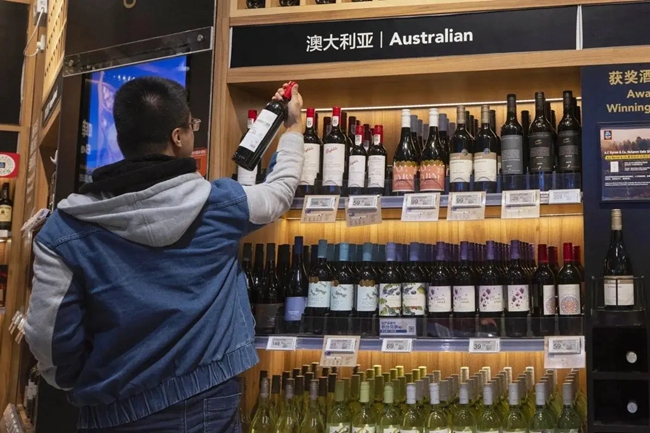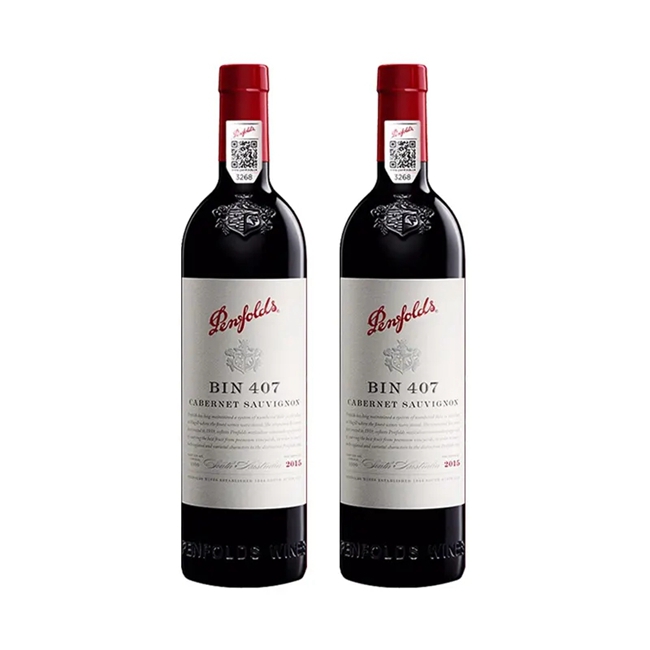"Our winery's wines from this year are making their way across the ocean to China, and we'll soon be able to assess Chinese consumers' acceptance of the wines so we can better plan for future sales." Australian winery owner Kim Tesner talks about the sales of his own products in China, his words are full of expectations.
Reporters recently visited some Australian wineries, and the owners and operators of these wineries to communicate, the biggest feeling is that they are extremely optimistic and highly expected to plow into the Chinese market.
Tesner's Tesner Winery, located in South Australia's world-famous Barossa Valley, has been in the Chinese market for many years with a wine brand created by Tesner. He is currently learning Chinese to better engage with the Chinese market.
"The wine trade between Australia and China is growing rapidly and I'm very optimistic about the future," Tesner said. Tesner said.
Rhema Winery is located in Coonawarra, another important wine region in South Australia, and the long-established local winery was acquired by a Chinese company a few years ago. The winery's management consultant, Li Jie, has just finished attending a wine show in Hong Kong, China.

"We have been busy receiving one set of domestic purchasing groups after another, and have been so busy with the recent sales orders that we had three containers shipped to Ningbo on June 13," Li Jie said, "We are also utilizing our local influence in Coonawarra to help more local wineries to enter the Chinese market and to promote the China-Australia wine trade."
Chris Thomas is the shareholder director and executive general manager of Duodu Winery in McLaren Vale, South Australia, and a 25-year veteran winemaker.
"I first went to China in 2012 and started doing wine trade to China," Thomas said, "Almost all of the exports from Dudu Winery go to the Chinese market, accounting for about one-third of the winery's total production."
On June 12, Australia's Minister for Trade and Tourism, Don Farrell (Tang Fangrui in Chinese), and Minister for Agriculture, Forestry and Fisheries, Murray Watt, jointly published an article titled, "South Australia Benefits from Wine Exports to China," announcing a figure that cheered local wine industry practitioners: in April this year alone, Australia exported a total of about AUD 86 million (about RMB 410 million) to China In April of this year alone, Australia exported a total of about 86 million Australian dollars (about 400 million yuan) of high quality wine to China.
The article points out that most of Australia's wine exports to China come from South Australia, and that wine exports from this region to China amounted to A$80 million in April, which is "a fantastic result" for Australian wine producers. The article emphasized that wine exports to China "benefit both Australian producers and Chinese consumers" and that the Chinese market offers a "fantastic future" for the Australian wine industry.
During exchanges with journalists, the owners and operators of these Australian wineries have made efforts to "bring goods" for their own wines.
Tesna told reporters, Tesna winery in the Barossa Valley has 200 hectares of vineyards, the winery can produce more than 3,000 tons of wine each year.
"The Barossa Valley grapes are highly ripe, producing wines with rich texture, unique flavor and good acidity, which makes it a good match for Chinese food." Tesner said.

Thomas said Du Du Winery has 14 tasting rooms throughout China, where he travels frequently and has made many good friends.
"Drinking a big bottle of Tudor wine with incredible Chinese food ...... I miss this so much," Thomas told reporters.
In the opinion of Yao Huifan, export marketing manager of Tesna Winery, China and Australia have been deeply intertwined in the field of wine industry.
"South Australia alone has dozens of Chinese-funded wine enterprises of all sizes, with nearly 1,000 practitioners from China, some doing trade to help local wineries explore the Chinese market; some acquiring local wines to make their own brands; and others acquiring local wineries, combining the market and capital with local technology." Yao Huifan said.
"In the medium to long term, the Chinese market will remain a huge attraction for the Australian wine industry, and the future of wine trade between the two sides is promising." Chinese Consul General in Adelaide Li Dong said.

